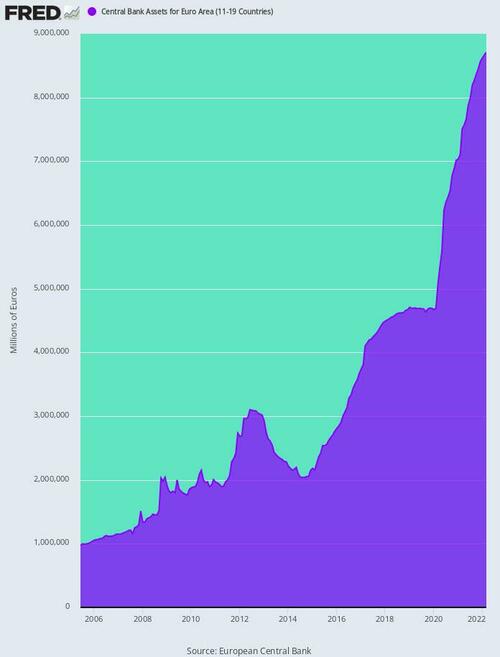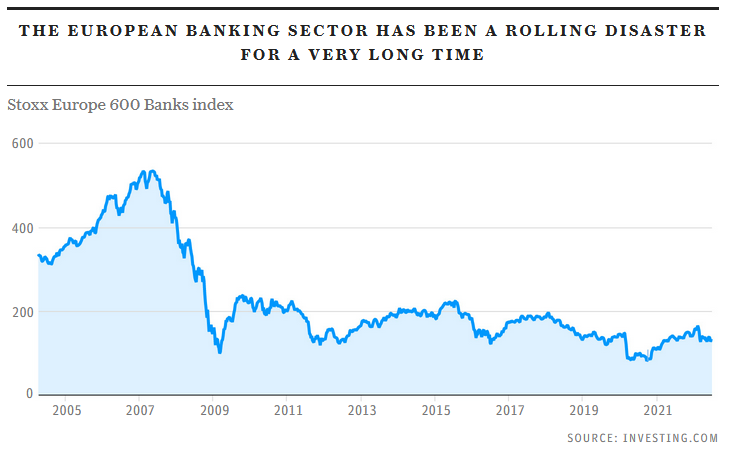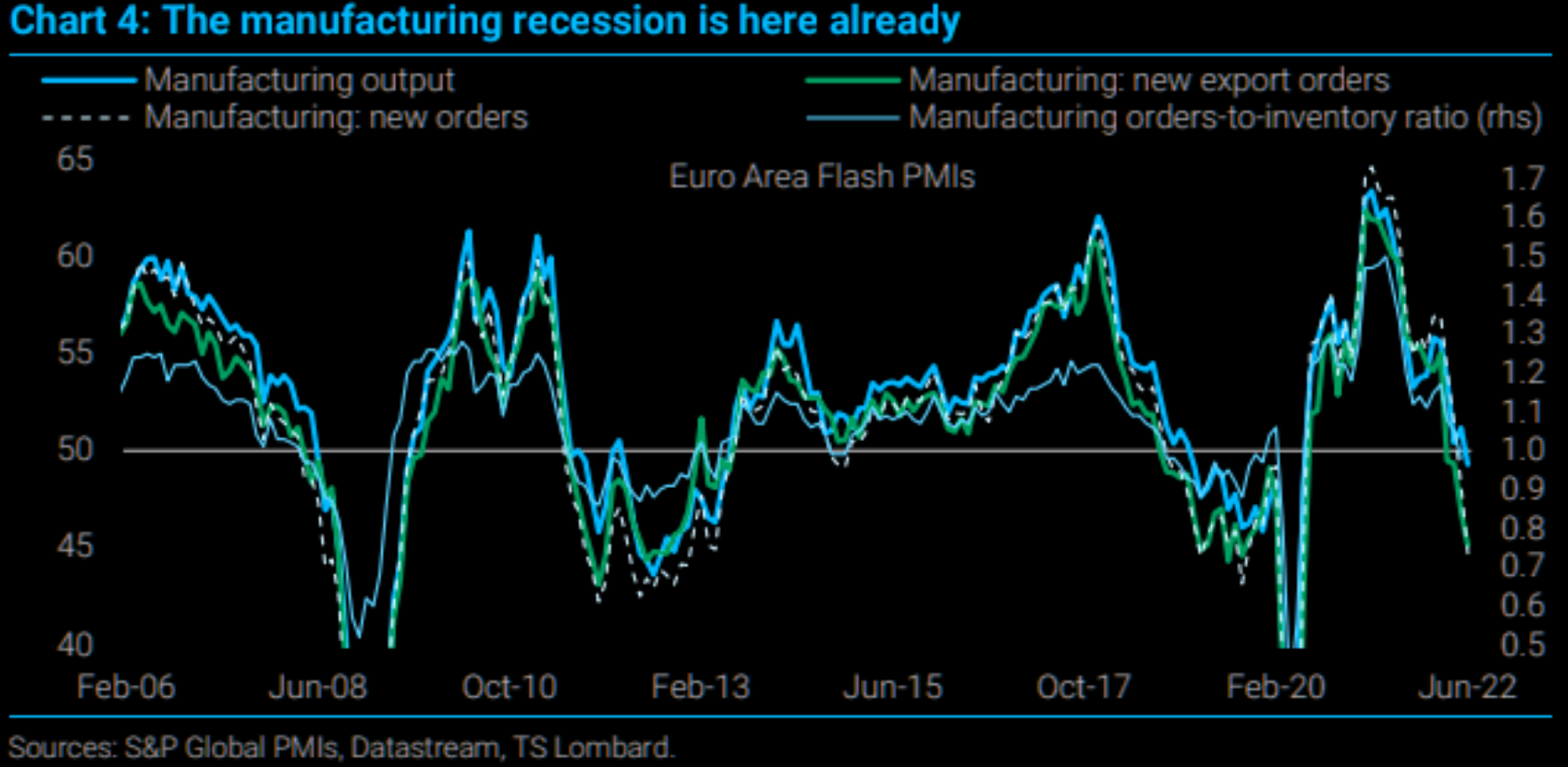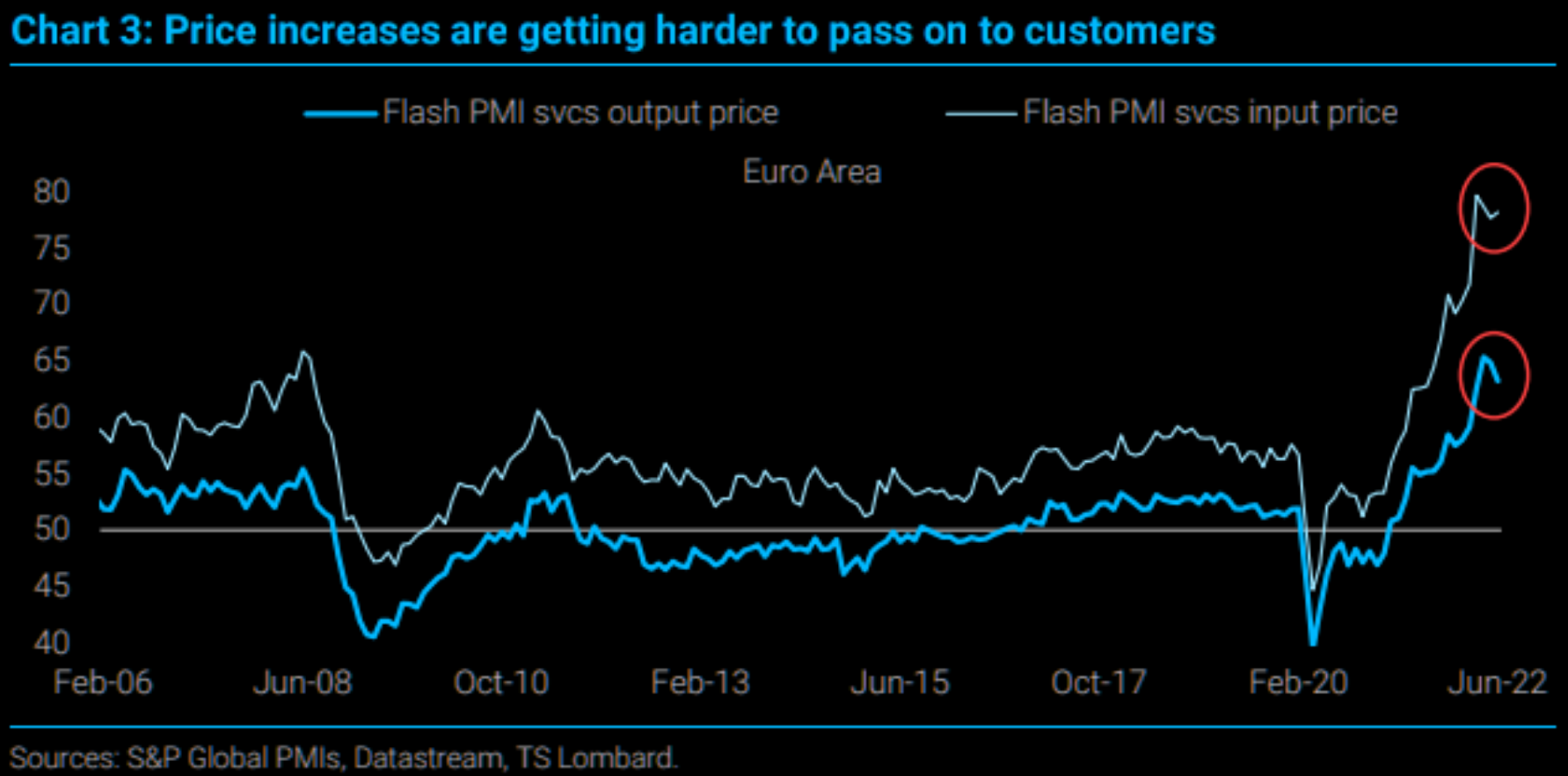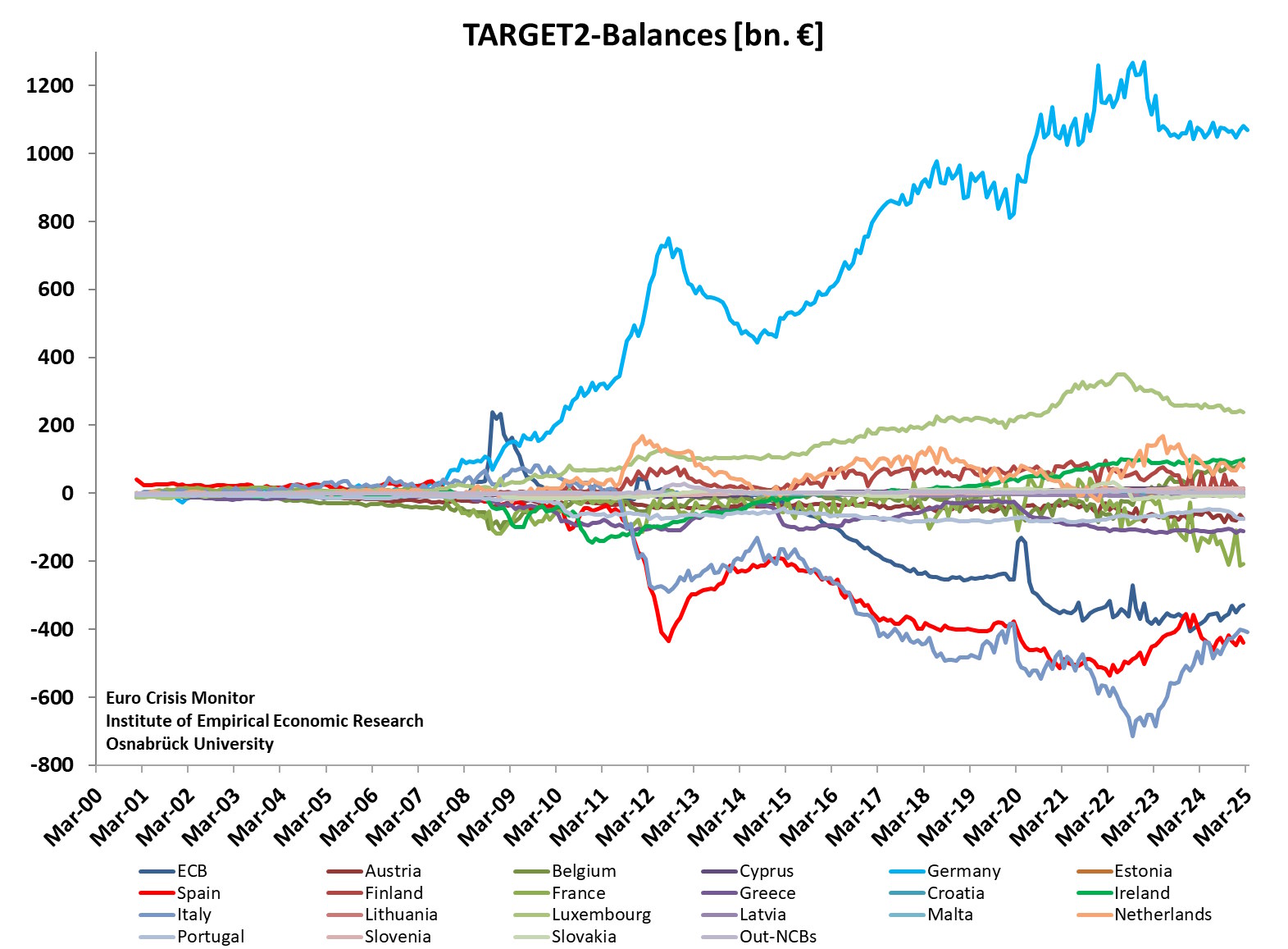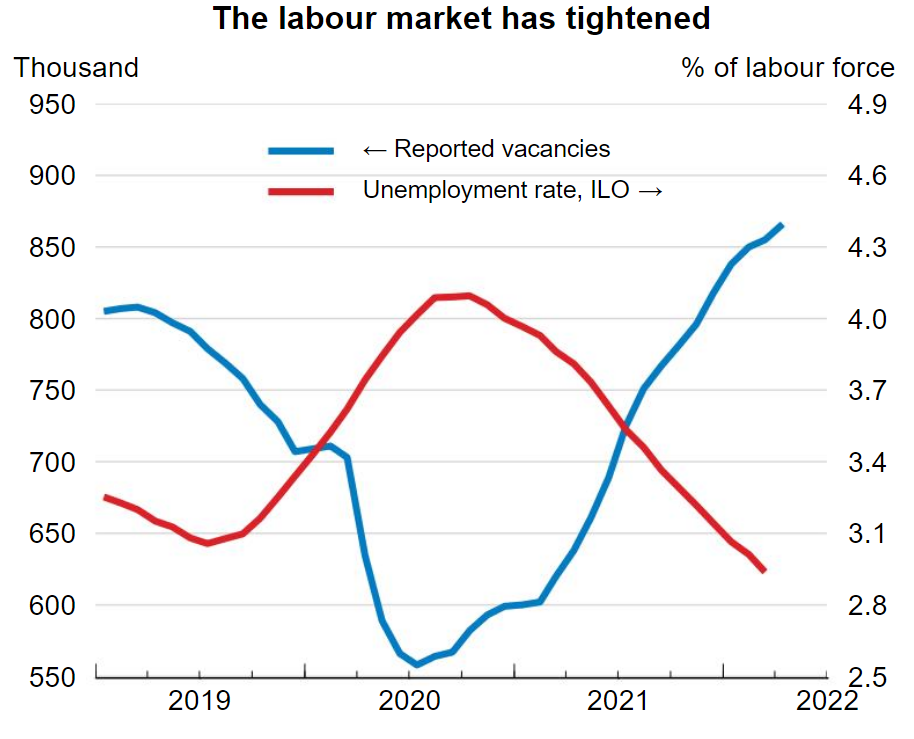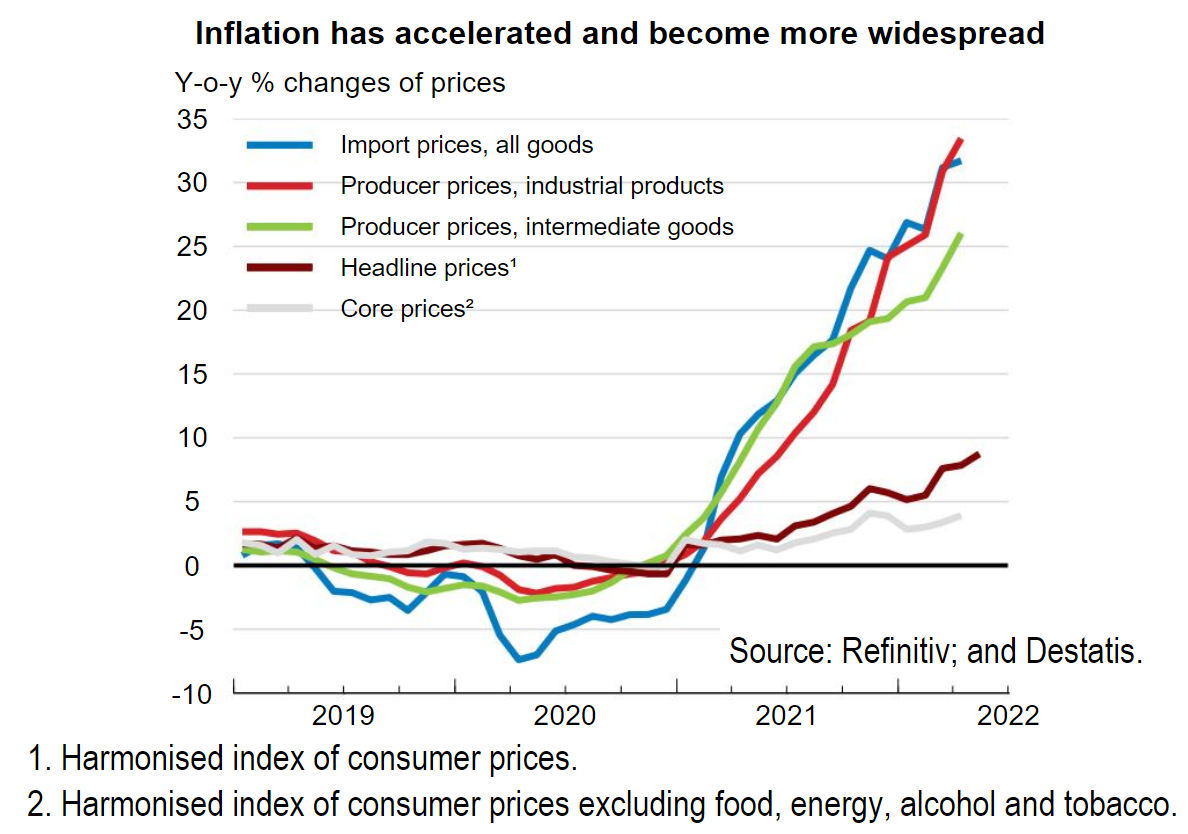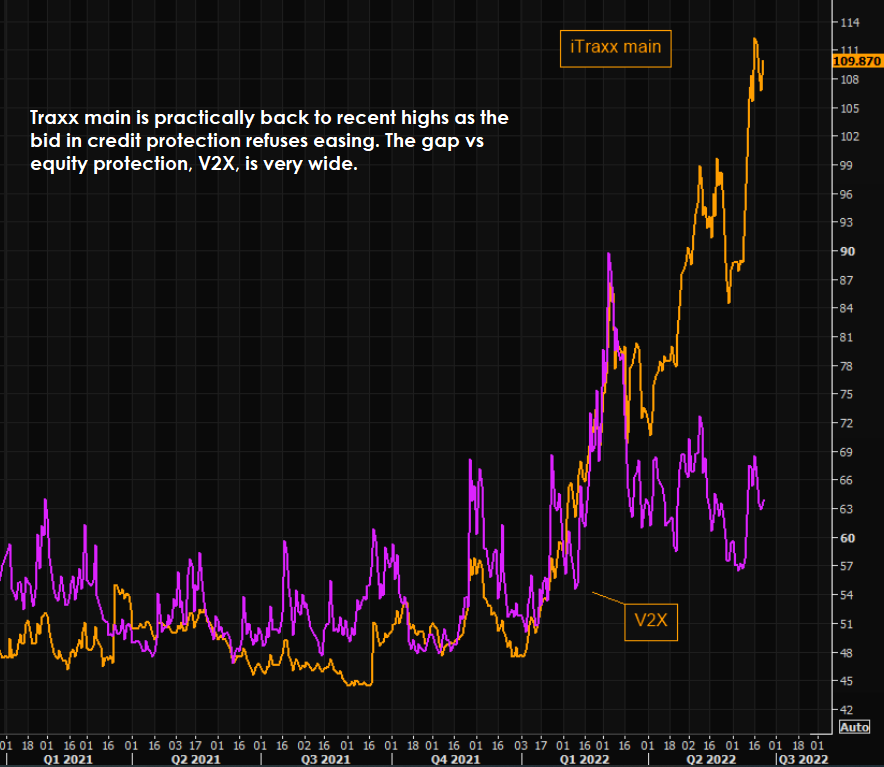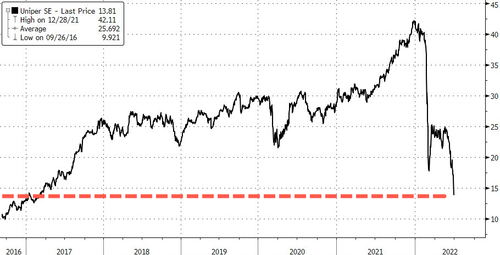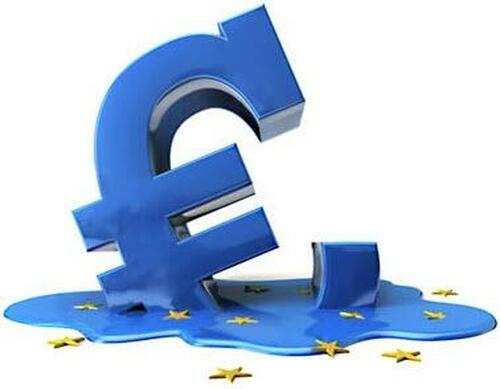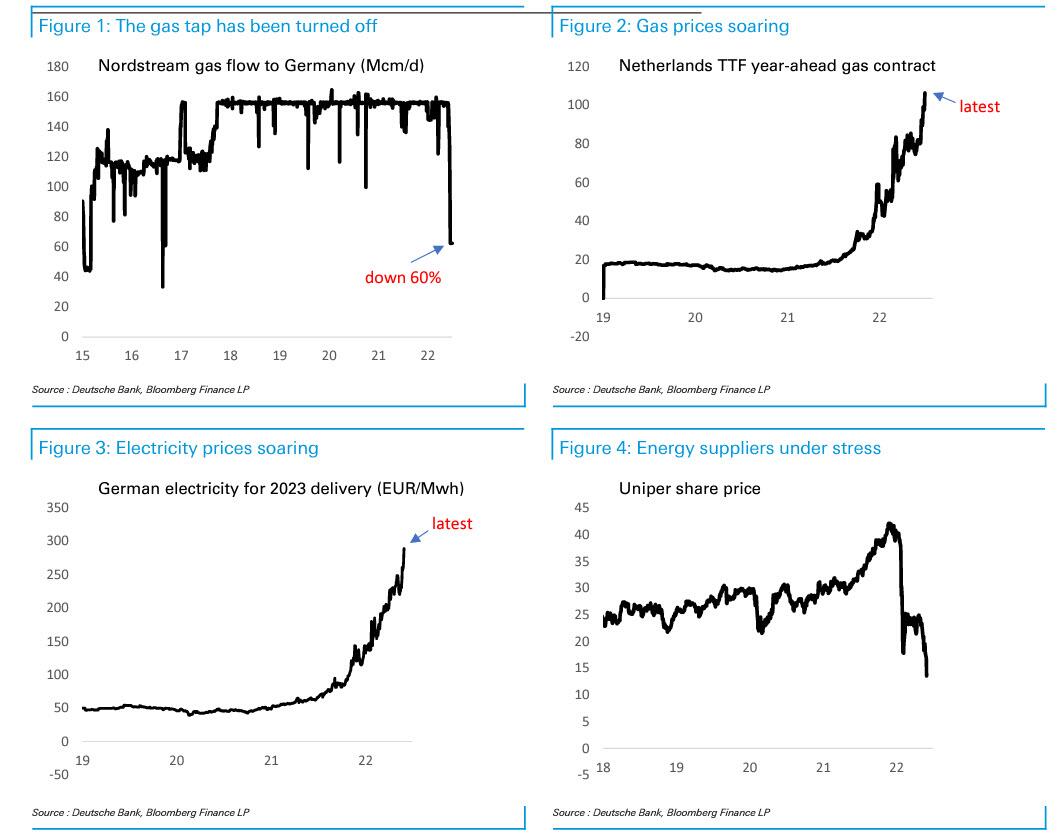The ECB will pursue bond buying versus selling, broken down by geography.
Reuters reports that the European Central Bank will buy bonds from Italy, Spain, Portugal and Greece with some of the proceeds it receives from maturing German, French and Dutch debt in a bid to cap spreads between their borrowing costs.
The Central Bank has divided the euro zone’s 19 countries into three groups – donors, recipients and neutrals – based on the size and speed of a rise in their bond spreads in recent weeks, according to conversations with a half a dozen people at the ECB’s annual forum in Sintra, Portugal. The spreads are gauged against German bonds, which serve as a de-facto benchmark for the single currency area.
In short, the ECB will buy worthless bonds with money from maturing viable bonds (those of Germany, France and Netherlands).
Which, while clearly not QT, at least has a chance of working because as we explained, only explicit bond buying by the ECB will prevent a collapse in Italian bonds. Well, that’s precisely what the ECB is doing, even if it means it can’t claim with a straight face that it is pursuing Quantitative Tightening.
The ECB will kick off this “re-balancing” on Friday to prevent financial fragmentation among euro zone countries from getting in the way of its plan to raise interest rates – with an additional scheme due to be unveiled next month.
The lists of donor and recipients countries, which will be reviewed monthly, mirror the division between peripheral (insolvent) and core (solvent) countries that emerged at the time of euro zone’s first debt crisis a decade ago. Recipients include a handful of countries perceived by investors as riskier due to their high public debt or meagre growth, such as Italy, Greece, Spain and Portugal, the sources said.
Still, there is a glitch: while redemptions in July and August are substantial, the ECB knows that merely reinvesting of the proceeds will not be enough to calm investors. So the central bank has sped up work on a new tool that will allow it to make new purchases where they are needed if a country meets certain conditions. Needless to say, this is not QT. It is however, QE, and is not just a violation of Europe’s deficit funding limitations, but worse, is a targeted violation, one which will infuriate “donor” nations as soon as the next bond crisis sends core yields soaring while keeping Italian spreads artificially low.
The ECB’s new tool may be ascertained by the European Commission, based on its fiscal rules or economic recommendations, or by the ECB itself via a debt-sustainability assessment, as it did with Greece a few years ago, sources have told Reuters. The former option would keep the ECB above the fray but make it dependent on another institution. The latter would give central bankers a greater say but open them to accusations of getting involved in politics. The ECB may then drain cash from the banking system to offset its bond purchases, most likely via special auctions at which banks can secure more favorable interest rates if they park funds at the central bank. Read more
Policymakers have yet to decide whether to announce the size of the scheme, as they hope its mere announcement will stabilize markets and they may not have to use it.

